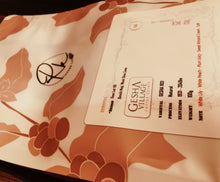Gesha Village is one of the most cherished coffee producers on the planet with 471-hectares in the Bench Maji zone of Ethiopia, nearby the town of Gesha and the Gori Gesha forest, the birthplace of the Gesha variety.
Owned and operated by Adam Overton, Rachel Samuel and Willem Boot, this project was started in 2007 and has quickly developed to be an idolized producer in the specialty coffee world. With ~320 hectares planted of Gesha 1931, Gori Gesha and Illubabor Forest varieties, throughout 8 different zones that correlate with unique terroir.
The 8 different zones, or sub-farms, are named after nearby villages and important sites. You'll find, Bangi, Dimma, Gaylee, Oma, Narsha, Surma, Shewa-Jibabu and Shaya featured amongst Gesha Village offerings.
A mixed system of agroforesty practices are utilized, with mostly natural forests providing shade and introducing the coffee to a diverse wildlife and flora, which provide a symbiotic system of organisms. The soil is brown-red loamy and virgin forest.
This lot comes from the Oma block, which is named after the religious leader of the Meanit people, a respected and loved figure. This lot is Gesha 1931 and is taken directly to dry for 24 days in raised beds under the sun and mixed shade. There is no intentional fermentation stage utilized.








